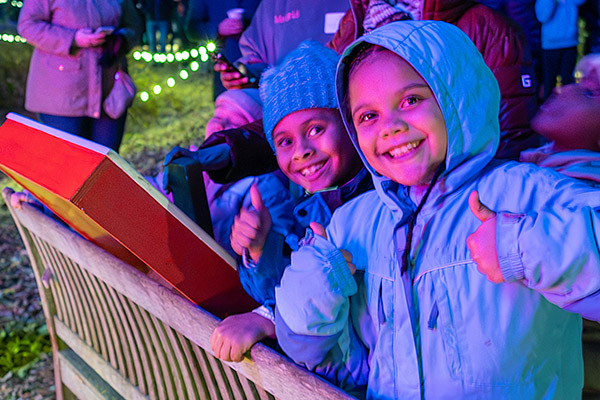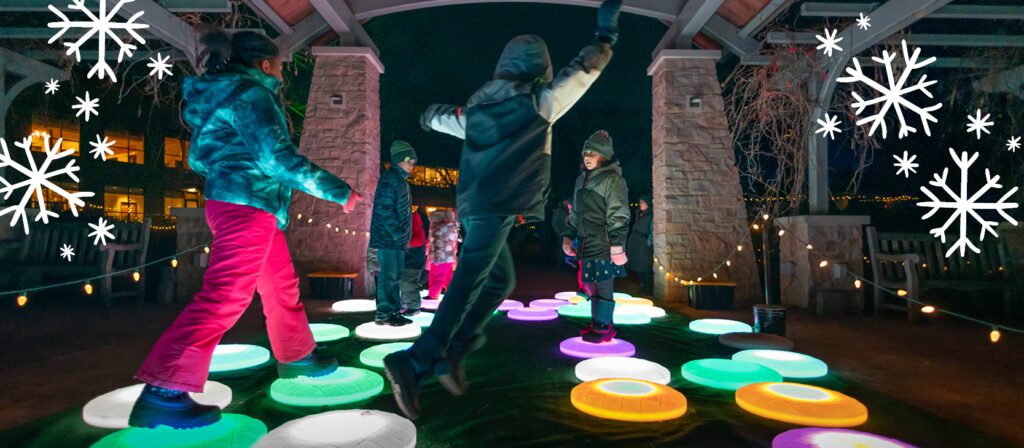If you visit the Garden in spring, you’ll see one of the oldest flowering plants known worldwide, the magnolia.
These beautiful flowering trees are older than bees! Yet, even more interesting is the Garden grows 14 unique magnolias breeds that don’t grow anywhere else.
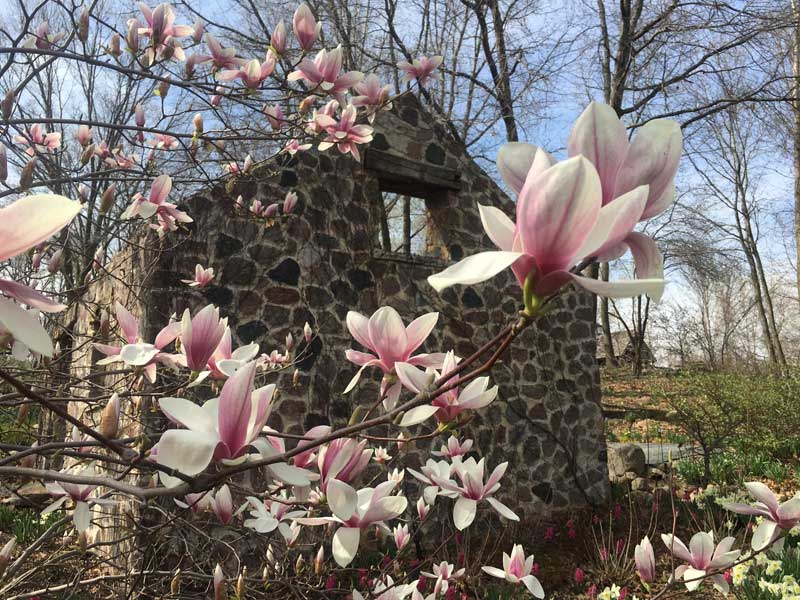

A collection of plants this rare is worth preserving! That’s why in spring 2021, members of the Horticulture Team began working to preserve the Garden’s rare collection in case a natural disaster were to wipe out the Garden’s collection.
Here’s a look into the process of preserving the collection and what this project means for Green Bay Botanical Garden!
JOINING THE MAGNOLIA MULTISITE COLLECTION™
The Garden’s collection of magnolias is part of the Magnolia Multisite Collection™ (a Plant Collections Network (PCN) site with the American Public Gardens Association). In 2018, the Garden became the first Wisconsin site to join the Plant Connections Network.
Magnolias grow in a wide geographic range so there are sites located all throughout the United States. Seventeen gardens comprise the Multisite nationwide and of those 17, Green Bay Botanical Garden has the coldest climate, located in USDA Hardiness zone 5a.
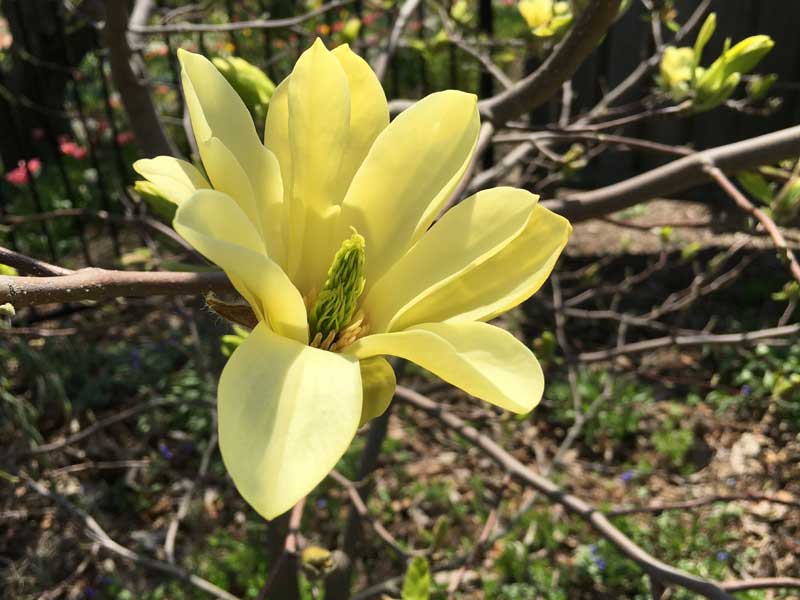

PROJECT COORDINATION & TIMING
To preserve the 14 unique magnolias, our Horticulture Team works with Hidden Hollow Nursery in Tennessee. Hidden Hollow provides a location to grow magnolia so not all copies would get destroyed if something were to destroy Green Bay’s copy.
“What we are going to do for the 14 unique ones is propagate them and then plant them on another part of the garden site so if say a tornado came through and destroyed a certain area we’d have a backup of them,” says Mark Konlock, Director of Horticulture. “Then we are also going to try to back them up with at least one other garden that’s part of the Plant Connections Network.”
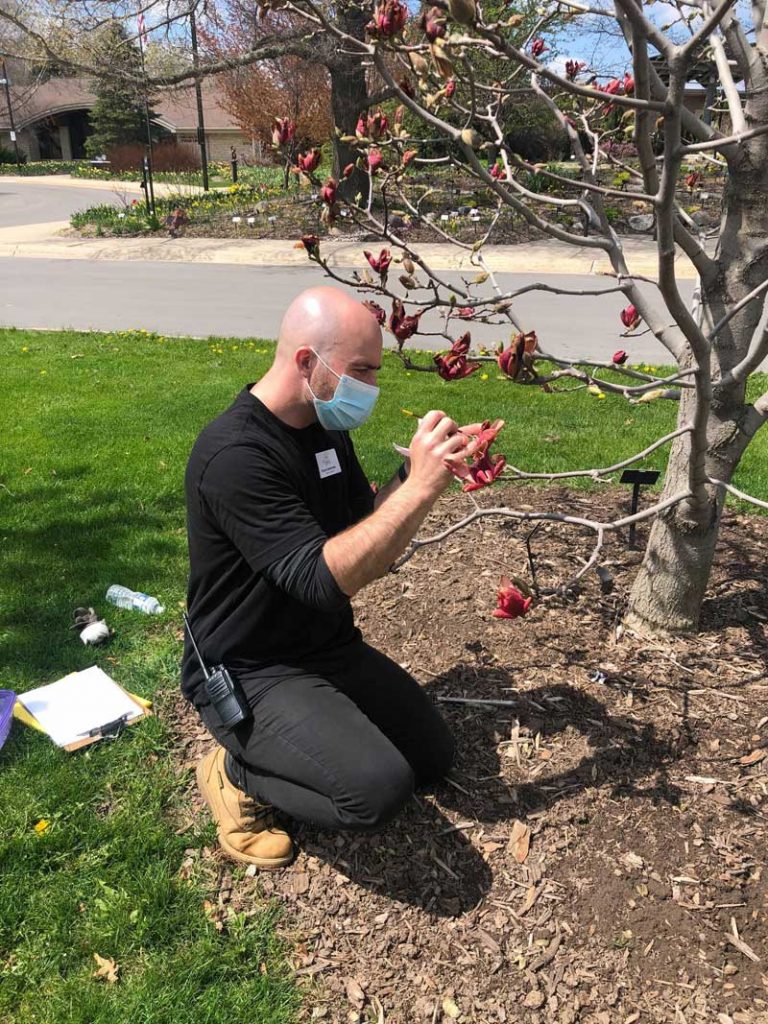

In spring of 2021, Ryan Hammes, Project Coordinator and Horticulturist, sent half of the unique grouping to Tennessee and expects to get those plants back in spring 2022. The other six or seven magnolias will be sent fall 2021 and be returned to the Garden the following year.
The Horticulture Team is also exploring other garden sites in the state of Wisconsin to work with on propagating the unique collection.
So what do we mean by “sending” magnolias?
PROPAGATION PROCESS & CHALLENGES
The process to preserve these magnolias is quite complex. Our horticulturists cut off several pieces (scion wood) of the magnolias and send the cuttings to grow in Tennessee. Hidden Hollow then makes sure these cuttings grow into a plant that can survive on its own.
“We clipped scion wood – a clipping that has at least the prior year’s growth or more – about 10-12 inches long from half of the magnolia that we selected and sent them off to Tennessee,” explains Hammes, describing the process behind magnolia duplication.
Once the magnolias are duplicated and mature enough to grow, Hidden Hollow plants some in their location and sends the other propagated magnolias back to us.
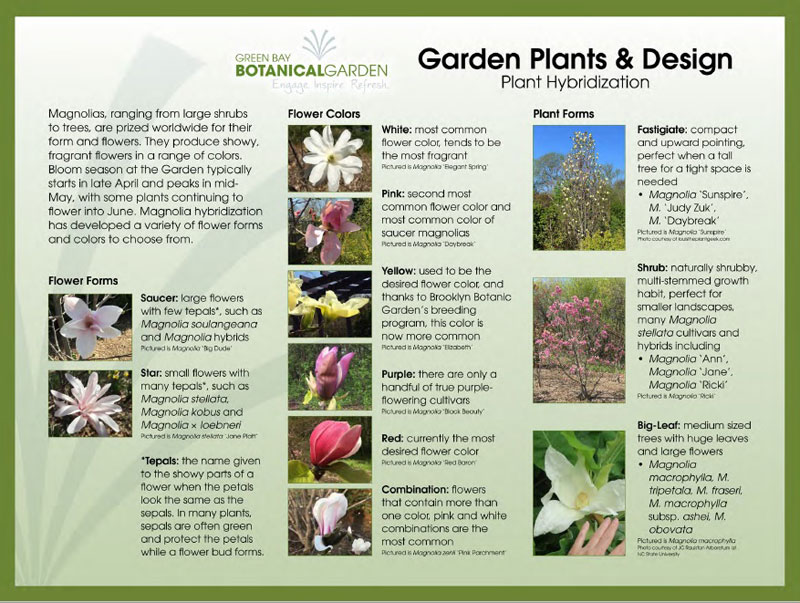

One of the main challenges of duplicating magnolias is having enough space to do so.
“If you have to duplicate your stuff it’s kind of crazy to have two collections of the same plant in a limited amount of acreage,” says Konlock. “That’s the beauty of the Magnolia Multisite Collection PCN collection because it’s duplicated within all the gardens that are part of it.”
PRESERVING LEDVINA’S LEGACY
The Garden is fortunate to grow such an extraordinary collection of magnolias and we have Dennis Ledvina to thank for it!
Ledvina (1939-2015) was a local magnolia hybridizer who made significant contributions to the Magnolia Multisite Collection in his lifetime.
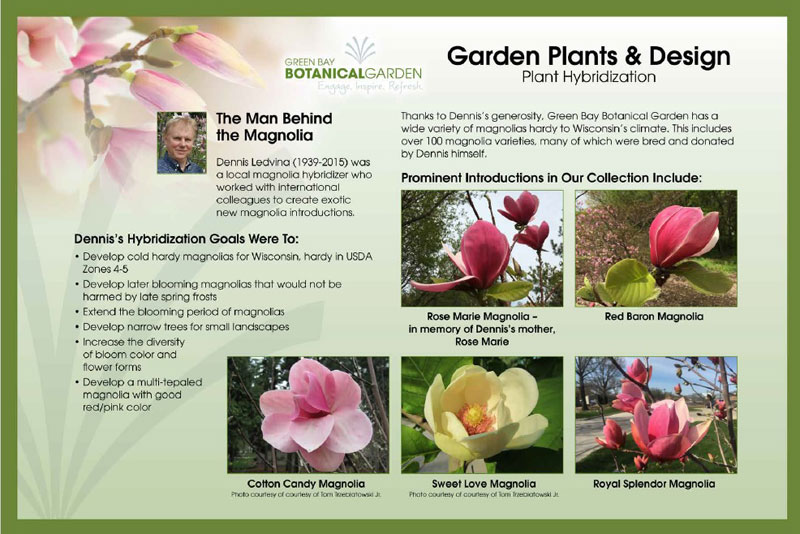

Ledvina concentrated on breeding magnolias with unique characteristics to adapt to the cold Wisconsin winters. He introduced magnolias hardy enough to withstand winters in zones 4 and 5 as well as later bloom times to reduce the impact of late spring frosts.
Other unique characteristics include longer magnolia blooming periods, narrower trees to fit smaller landscapes, and greater diversity of bloom color and flower form.
Remember to stop by the Garden next spring to enjoy the blooming magnolias!
This story originally appeared in the 2021 September-December Newsletter.





